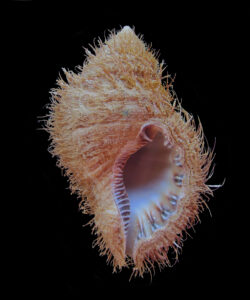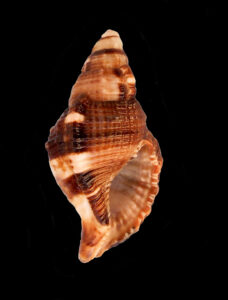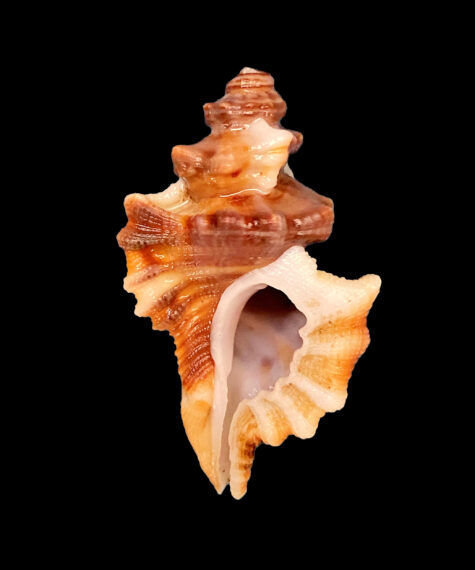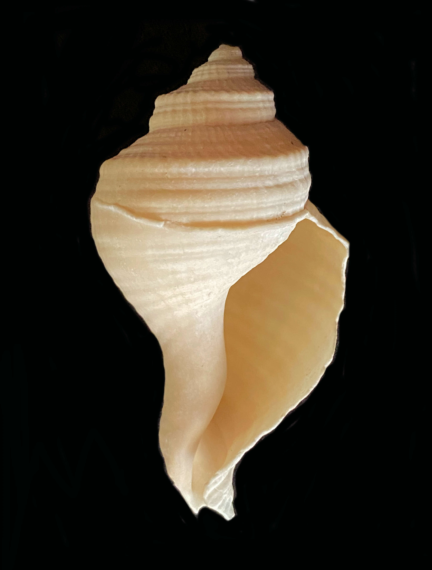Triton Shells in the Cymatiidae Family are covered with a thick, fibrous, hair-like periostracum, giving rise to the common name Hairy Triton. They are a diverse family of solidly built shells that range in size from small to large. Most species in the Family are slender, with several body whorls, and sharp pointed spires. The varices tend to occur at constant angles from one another, i.e. 120o or 270o. Unlike Murex or Rock Shells, the Tritons do not have spines. They have apertures that are flared and usually large, often with a thick outer lip. The lip is marked with a series of short ridges and the inside lip has folds or ridges. Tritons have anterior siphon canals that are open and fairly long. They have a thick, ovate, operculum that are horn-like in composition. Triton shells are often brightly colored.
The Tritons reside on, and under, rocks and coral rubble, and on sand substrate. They range in depth from in the intertidal zone to depths in excess of 400 m (1,300 feet). They prey upon other bivalves and gastropods, ascidians, sea cucumbers, sea stars, and urchins. They sense their prey with chemoreceptors and utilize chemicals in their saliva to anesthetize and pre-digest their prey. In turn they are preyed upon by crabs, fish, sea stars, and predatory mollusks.
Triton species have a long larval phase. Consequently, they can drift, as plankton, for long distances before settling to the bottom. As a result, these species are widely distributed with some Triton species having a circumtropical in distribution being found found in all tropical and temperate seas.
The Cymatiidae Family has one hundred thirty six global members, of which ten are found in coastal waters of western Mexico.
Note: Some taxonomy sources, such as ITIS (Integrated Taxonomic Information System), state that Cymatiidae is an invalid family, and that it should be considered a synonym of the Ranellidae family. Other sources, such as WoRMS (World Registry of Marine Species) consider Cymatiidae to be a valid family.



